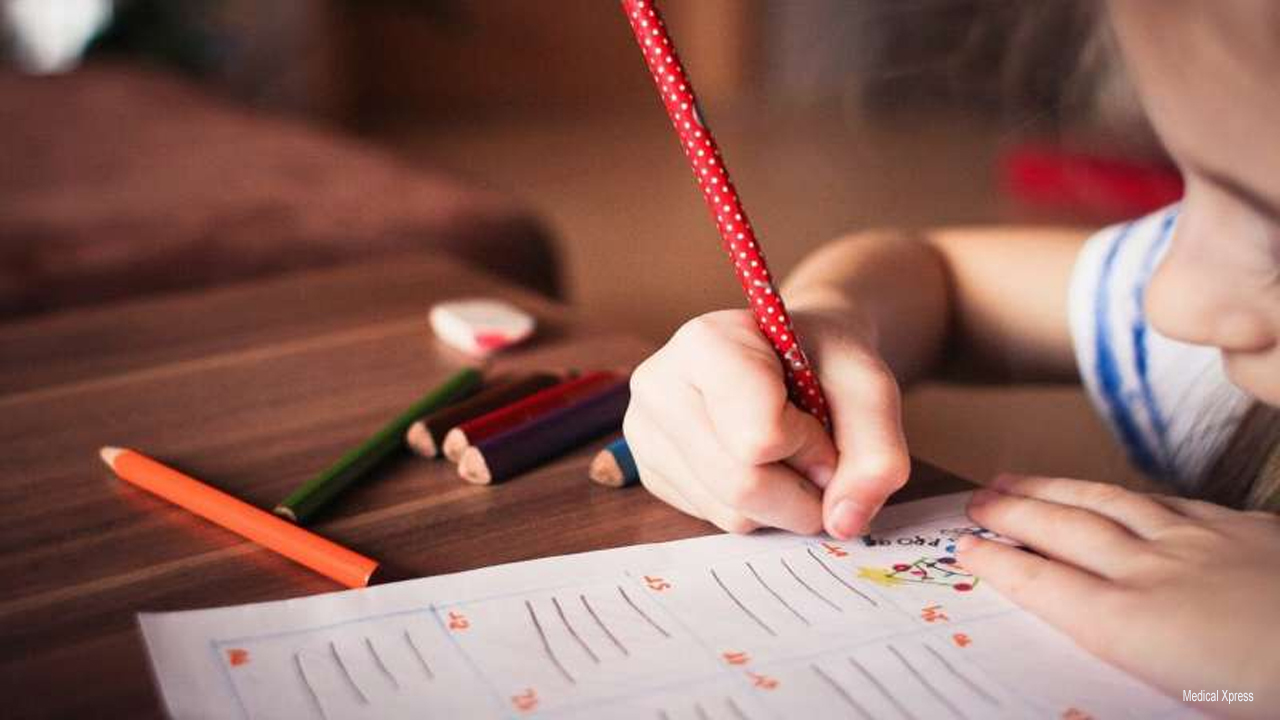The prevalence of depressive symptoms rose substantially among young children during the UK-wide lockdown in response to the first wave of the coronavirus pandemic, finds research focusing on one region of England and published online in Archives of Disease in Childhood.
The effect size was medium to large, indicate the findings, which have implications for future partial or complete school closures, suggest the researchers.
Social distancing and school closures during the lengthy lockdown across the UK earlier this year are thought to have badly affected children’s mental health.
But there has been little hard evidence to substantiate this, largely because it is hard to find good baseline data, for the same children, collected before the first lockdown on March 23.
The researchers were able to get round this by drawing on data on children living in the East of England who were part of the Resilience in Education and Development (RED) study.
During lockdown,168 of their parents--equivalent to 29% of the overall sample--completed online validated mental health assessments to rate their children’s emotional wellbeing, anxiety and depression.
These ratings were then compared with baseline data collected around 18 months earlier, which included a mixture of parent-, teacher-, and child-rated mental health measures.
Compared with the initial baseline assessment, there were no significant changes in levels of anxiety or emotional wellbeing during lockdown.
But a significant increase of 0.74 in depressive symptoms was observed, the effect size of which was medium to large. Put simply, this means that, on average, there was around a 70% chance that depressive symptoms worsened during lockdown in any child.
These findings held true even after accounting for potentially influential factors, including age, gender, and socioeconomic status, although larger numbers of children are needed to confirm this, say the researchers.
To find out whether changes during lockdown might have been driven by specific items within the depression scale, the researchers looked at changes in responses to each individual question in the mental health scales.
This revealed significant increases for 4 out of 5 of the depression questions during lockdown in respect of lethargy, struggling to enjoy activities, and feelings of sadness or emptiness.
This is an observational study; the numbers are relatively small; and from one area of England only, so may not be more widely applicable, caution the researchers.
But they point out: “The backdrop is that children’s mental health appears to be worsening across successive cohorts, and even before lockdown, the resources for Child and Adolescent Mental Health Services were stretched thin.
“The current findings suggest that lockdown measures will likely exacerbate this, specifically with an increase in childhood depression symptoms, something previously relatively uncommon in children of this age.”
They add: “Our findings emphasise the need to incorporate the potential impact of lockdown on child mental health in planning the ongoing response to the global pandemic and the recovery from it.”
Dr Karen Street is a paediatric consultant and mental health lead at the Royal College of Paediatrics and Child Health (RCPCH), which co-owns the journal with BMJ.
She commented: “This study reports what many paediatricians have observed--while children rarely become ill with COVID-19, they have been significantly affected by the measures taken to reduce transmission of the virus.
She added: “The RCPCH welcomes the government’s ongoing commitment to keep schools open. It would also be good to see extra-curricular activities and opportunities for children and young people return as soon as possible.
“While we hope that for many children a return to normality will see a 'rebound' in their emotional wellbeing, we also know that the socioeconomic impact of lockdown for many families will be ongoing for many years, and that this will have secondary negative effects on the mental health of children.
“Persisting mental health problems in childhood and adolescence are associated with poor outcomes for educational attainment, employment, and long term physical and mental health so it is vital there is sufficient investment in health, education and the voluntary sector to support children's mental health as we recover from the pandemic.”

 Effect size medium to large, the findings indicate; implications for future school closures
Effect size medium to large, the findings indicate; implications for future school closures


































